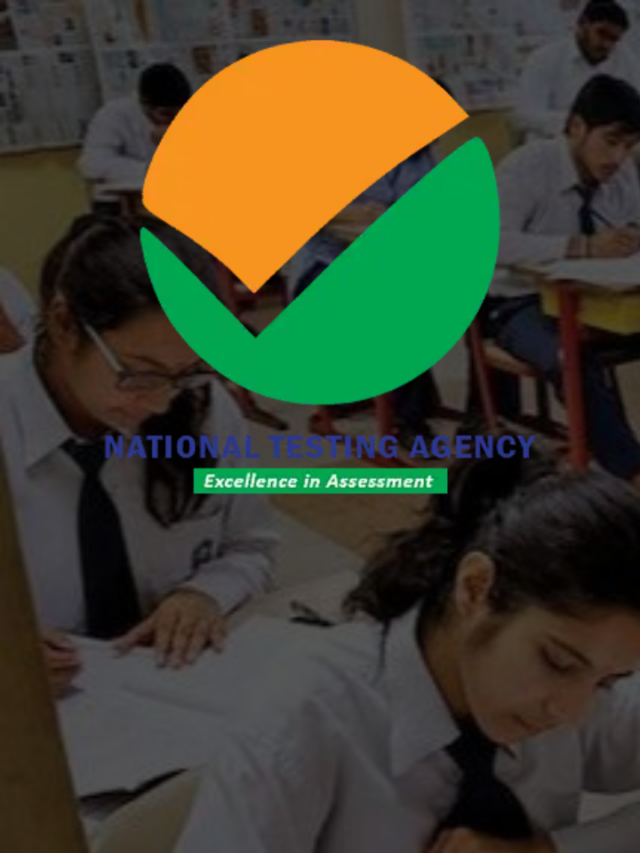News
100 Daily Use English Sentences for Students | Learn Everyday English for Speaking

Using English sentences daily for children who are not fluent in the language may be a challenge because adults have greater experience speaking and communicating in the language. Many parents find it difficult due to the fluency and lack of familiarity with the typical expressions of their children. Common words and phrases can be used in everyday discourse since they’re simple, direct, and accessible.
For parents whose kids aren’t fluent in English, they should start with simple statements like “eat,” “thank you,” and “welcome,” then gradually increase the difficulty level and use more complex sentences like “consume your food,” “have a nice sleep,” and so on. Gradually start talking to your youngster after they’ve mastered the elementary sentences. If you and your child are both in the process of learning, it’s okay to make errors and then move on.
- How to begin Speaking English Confidently?
- Daily Use English Sentences for Kids
- Common English Phrases for Daily Use
How to begin Speaking English Confidently?
This is a collection of kid-friendly English sentences. Does speaking English terrify you or make you feel awkward? As a result, we’ll be sharing some advice with you today on effortlessly overcoming feelings of shame or guilt. You only need to begin speaking English with the children right now because we have to speak English with youngsters in short sentences, which you can pick up in no time.
Starting to speak English with children can remove any shame or fear you may have about doing so. Then, after time, you’ll be able to converse in English with anyone. Today, we will show you a few phrases that you can frequently use with children. And if you know these sentences, you will learn to speak English extremely rapidly. We’ll start now
Daily Use English Sentences for Kids
How to Communicate with Children in English. Here are some often used sentences to get you started in your conversation with a child.
Sentences of Compliment
Children enjoy being complimented. To encourage them, commend them in simple language on occasion, but avoid using difficult words or sentences that they have not yet learned. Here are some English sentences for kids that you can use regularly
- Excellent work! – Following a successful performance in anything.
- Congratulations, lad! – Following a successful performance in anything.
- You’re doing great! – To cheer up your kid on something.
- Wow! That is a significant step forward. – Following the advancement in any task.
When Giving Directions
We employ various instructions in our daily lives to complete tasks. Replacing those lines with short, uncomplicated English sentences for children could benefit.
- Hurry up When a child is lagging.
- Prepare quickly! – Prompt the child to prepare for something.
- Don’t touch that! – To keep kids away from filthy and unsafe situations.
- Slow down! – Telling them to be cautious when they run.
- It’s beyond time to go to bed! – During the night.
During Scolding
No parenting is complete without scolding, and yelling is essential for disciplining your child. When combined with your mother tongue, scolding in English is simple.
- Be courteous to ____(a person)! – When your child is being impolite to someone.
- Where have your manners gone? – A child behaves erratically at home or someone else’s home.
- That is not appropriate! – When a child engages in socially inappropriate behavior.
- How could you use that tone with me?! – When a child uses abusive language or raises their voice toward an adult.
Read More:
Common English Phrases for Daily Use
Talking to new people can usually be intimidating, especially if you aren’t secure in your English. On the other hand, these simple statements will help you introduce yourself, request crucial information, and even make new friends!
The following are some common classroom questions and some possible responses. The sentences can be used in various contexts. Make your sentences with the terms like: “My name is…”, “Can you assist me with…”, and so on!
Meeting New People and Introducing Yourself
When you meet someone for the first time, it’s usually a good idea to introduce yourself and ask for their name too. Maintaining a courteous and friendly tone also gives the impression that you are a very good person!
- Hello. What is your name?
- I am Neha. What about you?
- Hello. My name is Leo. Do you want to be friends?
- Sure, I’d be delighted!
- Hey. Is anyone already sitting here?
- No, but you are welcome to sit here.
- Which grade do you belong to?
- I am in the ninth grade! So, how about you?
- Do you wish to collaborate on the group project? I don’t yet have one.
Sure!
Spoken English Useful Sentences for Daily Use in Class | Daily Use Sentences in School
We frequently have to seek information from the individual sitting next to us. Use these phrases to ask boldly and react to questions!
- What is today’s homework?
We have to prepare an essay about “A Haunted House Trip.” - What are our options for the first period?
Math. - Do you have the new schedule/timetable?
Yes! I’ve got it in my bag. Do you require one? - I was absent from class yesterday. Can I see your notes? What did we learn?
Sure! In English, we studied the second conditional. - When do we have lunch?
At noon.
English Sentences Used in Daily Life When Seeking Assistance
We all need guidance from time to time. Whether you missed a class or are having difficulty solving a problem, it is always acceptable to seek assistance from your friends and classmates.
- Could you assist me with my geography homework?
Sure. This is how it’s done. - How did you arrive at that conclusion?
The Pythagorean Theorem must be applied here. - Could you please tell me what we covered in English class yesterday?
Nothing special. The teacher started a new poem called “The Lady of Shallot,” and we all recited it aloud. - Excuse me, but I believe I’ve become disoriented. Where is the math class?
Room 302!
Simple Lunchtime Conversation Phrases
During a break, kids frequently eat lunch and socialize with their classmates. These are some examples of typical discussions.
- Have you brought your lunch?
Yes. My mum packed some pancakes she made earlier today. - What did you eat for lunch?
I had two slices of bread and an apple for breakfast. What did you have for dinner? - Will you join me for the break?
Sure, sure! - What do you think of the cuisine served in the school cafeteria?
It does not appeal to me. The sandwiches have almost no flavor! - I neglected to pack my lunch. Could you please share it with me?
Of course, yes.
Making Small Talk Phrases
You can’t create new acquaintances if you don’t chat with your classmates! Simple questions and sharing one’s likes and dislikes are wonderful strategies to identify common ground and prolong the conversation. You become friends as you get to know the other person. This style of discourse is referred to as “small chat.”
- What method do you use to get to school?
I take the school bus. So, how about you? - History is a difficult subject for me.
I’m the same way. I can’t believe I remember so many dates! - What is your favourite topic?
My native language is English. You? - Have you read it yet?
Yes, I checked it out from the library and thoroughly enjoyed it. - Have you seen the new film?
Oh, that latest Star Wars film? I did, but I didn’t particularly enjoy it.
English Phrases to Use When Speaking to Your Teachers
In most schools, pupils address teachers as “Sir” or “Ma’am,” depending on gender. You can also address the teacher by their last name, such as “Mr Smith” or “Mrs Smith.” Here are some essential phrases to remember when speaking with them!
Phrases to Use When Entering and Exiting the Classroom
- Ma’am, may I enter?
- Can I use the restroom/washroom?
- Sir, I’m feeling quite unwell. Could you please take me to the sickroom?
Are you wondering why we use “may” rather than “can” here?
The answer is straightforward: “Can” usually refers to the ability or talent of doing something, as in “I can draw” or “she can speak English.” However, “may” refers to permission, such as whether or not you are permitted to engage in a particular activity.
When you speak with a teacher, you are not asking whether you can accomplish anything but whether you have permission.
Consider the first example.
If you arrive late for class, the teachers may refuse to admit you. So when you say, “may I come in?” you’re asking if you have permission to enter the classroom from the teacher.
Phrases to Use When Questioning the Teacher
When you’re confused during a lesson, you normally raise your hand and ask the teacher. However, if you require a precise answer to anything that isn’t directly linked to the lesson (such as the test date), it’s best not to interrupt the class. Instead, you approach the teacher after the lecture has concluded.
- Could you please explain/repeat the previous point?
Obviously. - When is the exam, ma’am?
The first test will be on May 2nd. - This problem/assignment is causing me problems. Can you assist me?
Okay. Which section?
Conclusion
So, here are a few examples of regularly used English sentences. Students can improve their vocabulary by learning these sentences. To help their children learn faster, teachers and parents must focus on these fundamental elements. We hope you found this post useful. Bookmark this site to avail latest updates on similar kinds of articles like Self Introduction for Students.
-

 News2 years ago
News2 years agoWhatsApp DP for Students to Free Download | Creative WhatsApp Profile Picture Images that Make you Smile
-

 News2 years ago
News2 years agoTop 100 Funny Group Chat Names for WhatsApp & Other Social Media Apps | Best Cute Cool Fun Ideas for Group Names
-

 News2 years ago
News2 years agoMorning Assembly Word of the Day List for Students | Best Word of the Day for High School Students
-

 News2 years ago
News2 years agoBest Cute Funny Throwback Picture Captions 2022 | Unique Flashback Quotes for Instagram Posts & Stories
-

 News3 years ago
News3 years ago100+ Best Captions for Brother’s Handsome Photo That You Can Copy And Paste Easily
-

 Instagram2 years ago
Instagram2 years agoTop 200+ Best Cute Cool Instagram Bio Ideas of 2022 That You Can Copy-Paste Easily
-

 News2 years ago
News2 years ago100+ Best Cute Sweet Funny Instagram Captions for Sisters Photo | Get Free IG Quotes & Puns for Sisters Selfies
-

 News2 years ago
News2 years agoWhat are Some Cool Funny Activities for College Students? | Best Tasks for Party Games






